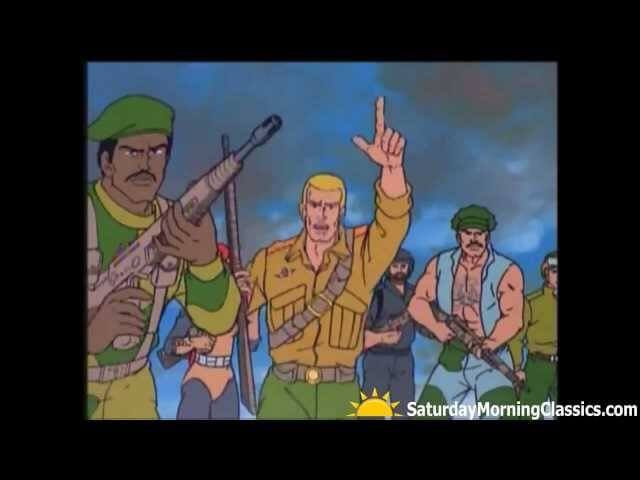Read This: An oral history of the G.I. Joe cartoon

In the ‘80s, Hasbro almost singlehandedly changed both toys and cartoons with The Transformers and G.I. Joe: A Real American Hero. Until those shows came long, the idea of creating the perfect loop of a TV show that promotes toys that promote the TV show was simply unheard of—or at least avoided on moral and legal grounds. Whether you see that as a good thing or a bad thing probably depends on how much you liked The Transformers and G.I. Joe as a kid, but either way, Hasbro changed a very small corner of the world with those cartoons.
To explore how exactly that happened, The Hollywood Reporter put together an oral history of G.I. Joe that features interviews with the creator of the show, a current Hasbro exec, and a whole bunch of the original voice actors. The details about how the show was created are pretty fascinating, with Real American Hero creator Ron Friedman explaining that he got the job because he accurately pointed out to Hasbro that the show would need to be slightly serialized in order to give the audience a chance to connect with the characters and “[see] them as people.” Friedman also explains that he organized the various characters into “groups of families” so he could visualize what their personalities might be, which made him realize that the show needed more female characters. He says he “knew girls who loved animation and loved superheroes,” so he didn’t want them to be left out.

 Keep scrolling for more great stories from A.V. Club.
Keep scrolling for more great stories from A.V. Club.